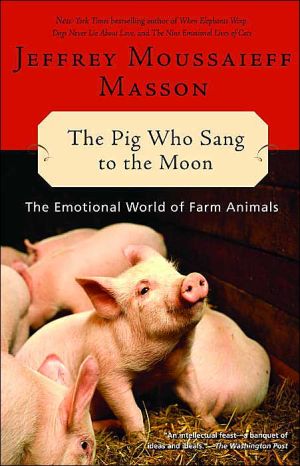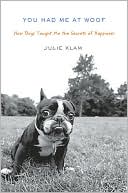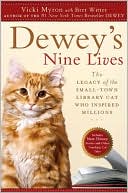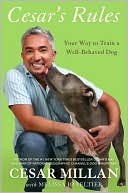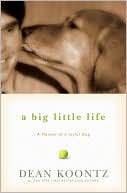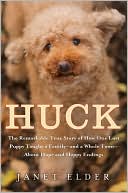The Pig Who Sang to the Moon: The Emotional World of Farm Animals
Jeffrey Moussaieff Masson’s groundbreaking bestseller, When Elephants Weep, was the first book since Darwin’s time to explore emotions in the animal kingdom, particularly from animals in the wild. Now, he focuses exclusively on the contained world of the farm animal, revealing startling, irrefutable evidence that barnyard creatures have feelings too, even consciousness.\ Weaving history, literature, anecdotes, scientific studies, and Masson’s own vivid experiences observing pigs, cows, sheep,...
Search in google:
Jeffrey Moussaieff Masson’s groundbreaking bestseller, When Elephants Weep, was the first book since Darwin’s time to explore emotions in the animal kingdom, particularly from animals in the wild. Now, he focuses exclusively on the contained world of the farm animal, revealing startling, irrefutable evidence that barnyard creatures have feelings too, even consciousness.Weaving history, literature, anecdotes, scientific studies, and Masson’s own vivid experiences observing pigs, cows, sheep, goats, and chickens over the course of five years, this important book at last gives voice, meaning, and dignity to these gentle beasts that are bred to be milked, shorn, butchered, and eaten. Can we ever know what makes an animal happy? Many animal behaviorists say no. But Jeffrey Masson has a different view: An animal is happy if it can live according to its own nature. Farm animals suffer greatly in this regard. Chickens, for instance, like to perch in trees at night, to avoid predators and to nestle with friends. The obvious conclusion: They cannot be happy when confined twenty to a cage. From field and barn, to pen and coop, Masson bears witness to the emotions and intelligence of these remarkable farm animals, each unique with distinct qualities. Curious, intelligent, self-reliant–many will find it hard to believe that these attributes describe a pig. In fact, there is much that humans share with pigs. They dream, know their names, and can see colors. Mother cows mourn the loss of their calves when their babies are taken away to slaughter. Given a choice between food that is nutritious or lacking in minerals, sheep will select the former, balancing their diet and correcting the deficiency. Goats display quite a sense of humor, dignity, and fearlessness (Indian goats have been known to kill leopards). Chickens are naturally sociable–they will gather around a human companion and stand there serenely preening themselves or sit quietly on the ground beside someone they trust.For far too long farm animals have been denigrated and treated merely as creatures of instinct rather than as sentient beings. Shattering the abhorrent myth of the “dumb animal without feelings,” Jeffrey Masson has written a revolutionary book that is sure to stir human emotions far and wide. Publishers Weekly The horrors have been pointed out before-that factory farm chickens are genetically altered, debeaked without anesthesia, and crammed into overcrowded coops; that calves are separated from their mothers and kept in dark crates to become veal. Here Masson (Dogs Never Lie About Love) makes the case that the animals humans eat on a regular basis-pigs, chickens, sheep, cows and ducks-feel, think and suffer. Each animal gets a chapter, in which Masson interweaves folklore, science and literature (he quotes Darwin, Gandhi and the Bible) with his observations of the animals' behaviors. He relates how a pot-bellied pig saved the life of her keeper and visits Dr. Marthe Kiley-Worthington, of Little Ash Eco-Farm in England, whose cow does agility tricks; he also interviews those who raise animals for profit. But there is no subtlety in his sometimes nauseatingly Edenic anecdotes: abused animals always come around and we live happily ever after. The text is pocked with far-fetched hypotheses (e.g., "A woman coming across a young lamb in ancient times might well have nursed the lamb" to explain the domestication of sheep). Arguing that all farming of animals for food is wrong (even eggs), Masson rebuts the fallacy that farm animals would die out without us, but doesn't say how we are to make the transition. His peripatetic style lacks transitions, for example going from cock fighting, which gets only one paragraph, to meditations on why roosters crow at dawn. Despite the holes in his preachy argument, his narrative contains some solid, fascinating information on the emotional life of farm animals. (Nov.) Copyright 2003 Reed Business Information.
ONE\ Pigs is Equal\ An old English adage claims, "dogs look up at you, cats looks down on you, but pigs is equal." There is some truth in the folk wisdom of this saying, which has been ascribed to different people, including Winston Churchill, but nobody is sure who said it first. Pigs are more or less the same size as human beings and resemble us in many ways. The organs of pigs are so similar to our own that surgeons have resorted to pig heart valves for replacing the patient's aortic or mitral valve.\ There is a wonderful quote from W.H. Hudson, the great naturalist who lived for some time in Argentina, that perfectly describes the pig's attitude towards us:\ I have a friendly feeling towards pigs generally, and consider them among the most intelligent of beasts. I also like his disposition and attitude towards other creatures, especially man. He is not suspicious or shrinkingly submissive, like horses, cattle and sheep; nor an impudent devil-may-care like the goat; nor hostile like the goose, nor condescending like the cat; nor a flattering parasite like the dog. He views us from a totally different, a sort of democratic standpoint, as fellow citizens and brothers, and takes it for granted that we understand his language, and without servility or insolence he has a natural, pleasant camaraderie, or hail-fellow-well-met air with us.\ The fact that pigs will become extremely friendly with humans, given half a chance, is something of a miracle, considering how we have almost invariably treated them. Perhaps pigs themselves are aware of our resemblance and so regard us more as cousins than members of a completely different species. Unlike dogs, pigs don't seem to have a critical period after which they can no longer be socialized. Handled with affection, even an adult pig might well become as friendly as a dog who has always lived with the family since puppydom. This shows remarkable trust and flexibility on the part of the pig. The one big difference between pigs and dogs is the way we treat them. We play with our dogs, take them for walks, and romp with them. We rarely do the same with pigs.\ One has to wonder why the pig came to be despised by both Jews and Muslims. Was it merely the flesh of the pig that was distrusted, or the pig itself, as an animal? By and large people have believed the former, claiming that because pig meat was so easily prone to spoiling and trichinosis, the consequent human diseases led them to avoid the meat and thereby censor the animal. But the late F.E. Zeuner, the leading expert on domestication, rejects this view, pointing out that pork is no more likely to spoil than any other meat in a hot country, and in any event there are tropical islands where pork is the main meat eaten. He proposes instead an interpretation having to do with the people who raised pigs. Unlike cattle, pigs cannot be driven, and therefore the pig is only valuable to the settled farmer. The nomad, who always felt superior to the farmer, "came to despise the pig as well as the farmer who bred it." The religious prohibitions seem to have been transferred from the people on to the animal, one they "themselves could neither breed nor keep." But then why would this not apply equally to chickens? Could it be that they are smaller and more transportable?\ In most parts of the world today, we cannot own another person in the way that we can own an automobile. The law is also increasingly taking the view that a human cannot "own" an animal companion either.\ This became evident when a wealthy man in Philadelphia sought to have his two dogs euthanized after his death. In a surprising victory for the views of the movement for the rights of animals, a United States federal court decided that animal companions cannot be owned, and therefore could not be disposed of at will as if they were merely chattels. The logic then (as now) is that living beings can never be property. As early as the nineteenth century, Henry Bigelow, professor of medicine at Harvard University, was writing: "There will come a time when the world will look back to modern vivisection in the name of Science, as they do now to burning at the stake in the name of Religion."\ It is undeniable that we humans share a great deal in common with pigs, though people have been reluctant to acknowledge the similarities. Like us, pigs dream and can see colors. Also like us, and like dogs and wolves, pigs are sociable. (I've been told that on warm summer nights pigs snuggle up close to one another and for some unexplained reason like to sleep nose to nose). The females form stable families led by a matriarch with her children and female relatives. Piglets are particularly fond of play, just as human children are, and chase one another, play-fight, play-love, tumble down hills, and generally engage in a wide variety of enjoyable activities. As Karl Schwenke points out in his classic 1985 book, In a Pig's Eye, "Pigs are gregarious animals. Like children, they thrive on affection, enjoy toys, have a short attention span, and are easily bored." He reports that when pigs were put into a small pen, as they are on most farms, "their world was instantly narrowed to each other, the food, and the sty, and as they grew, their world became smaller and smaller. The tedium of their existence soon became apparent: they were lethargic, exhibited ragged ears, had droopy tails, and rapidly acquired that dull-eyed glaze that swineherds associate with six- or seven-year-old breeding hogs." Much like children, piglets do not develop in a normal way when they are deprived of the opportunity to engage in play.\ Kim Sturla, of the Northern California animal sanctuary Animal Place, tells me that pigs express friendships with other pigs a variety of ways: vocalizing, body language, who they sleep with, explore with, who they hang out with during the day. Some pigs, Kim says, are friendly with certain pigs because they arrived at the sanctuary about the same time. Juveniles will play with each other and immense patience is demonstrated with new piglets. One can witness the interaction and affection when pigs greet each other, snout to snout, sometimes with love grunts—soft, wispy open-mouthed greetings given when a pig is in heat, feeling amorous, or maybe just feeling sweetly affectionate. Pigs can also be cliquish: an older new arrival may not easily find acceptance.\ Like humans, pigs are omnivores. Though they are often fed garbage and eat it, their choices—if allowed—would not be dissimilar to our own. Kim Sturla, of the animal sanctuary Animal Place, tells me that when she offers her pigs mango or a head of broccoli, they will always take the mango. She explains that they have a sweet tooth and a pastry will always win over a healthy vegetable. Remind you of somebody? They get easily bored with the same food. They love melons, bananas, and apples, but if they have had them for a few days, they will set them aside and eat whatever other food is new first. We don't often think of pigs and cleanliness in the same breath, but pigs, if permitted, will be more fastidious in eating and in general behavior than dogs. When offered anything unusual to eat, a pig will sniff at it and nibble gently. About 90 per cent of their diet in the wild is plant-based, consisting of fruit, seeds, roots, and tubers. In fact, a study of what fruits pigs routinely eat, conducted on one of the Indonesian islands, found that they would eat more than 50 varieties. Perhaps this is why of all animals their flesh most resembles human flesh, which is somewhat disconcerting when you consider that more than 40 per cent of all meat raised in the world is pork.\ Like people, pigs avoid extreme temperatures. Since they have sweat glands only on their noses, it is important that they do not overheat. Water is not effective in cooling them down, because it evaporates quickly, whereas mud provides evaporative cooling over a much longer period of time. This is why pigs, like elephants, need to roll in mud. Mud protects their sensitive skin from sunburn, dangerous to a pig, and also from flies and other parasites. It is not, then, that pigs are dirty; quite the contrary. Never will a pig defecate near its sleeping or eating quarters. Fastidiousness is one of a pig's most salient characteristics. Kim Sturla has repeatedly seen old arthritic sows waking up early in the morning, getting their stiff bodies up with enormous effort, then dragging themselves through deep mud to walk a long distance away from the barn before they would urinate.\ And if we find them sometimes difficult, because they can, like humans, have tantrums, it simply means that they are prone to powerful emotions. Pavlov, after a month of fruitless attempts to obtain gastric juice from a vociferous pig, declared: "It has long been my firm belief that the pig is the most nervous of animals. All pigs are hysterical." But let us bear in mind that this same comment has been made numerous times about women and, in both cases, it is an example of pure ignorance. What is clear is that pigs are much like us in ways that matter. There is nothing shameful in recognizing the similarity.\ The resemblance extends to the expression in the eyes of pigs. Many people have found it disconcerting to look into the eye of a pig. This is because one gains the startling impression of seeing another person looking back at you. Pigs have small, rather weak eyes, and appear to be squinting, as if they are trying to get a better take on the world. They seem often to wear a wistful look. Dick King-Smith, the writer who created Babe (turned into the much-loved film) and who used to be a pig farmer, said on a television show, "Many times I've looked into a pig's eye and convinced myself that inside that brain is a sentient being, who is looking back at me observing him wondering what he's thinking about." When I recently visited Carole Webb's Farm Animal Rescue in Cambridge, England, I was introduced to Wiggy, a gigantic boar (a male pig) weighing nearly a thousand pounds. As I came into his stall, he was busy picking out soft hay with which to line the straw in his self-made bed. He grunted when I walked in, looked up, and fixed me with his eye. It was uncanny, like meeting a person in the street whom you feel you know but cannot place. I looked away for a moment, embarrassed by the naked intimacy of his glance.\ Juliet Gellatley, in her book The Silent Ark, describes visiting a factory-farm shed where she saw a large male boar, "his huge head hanging low towards the barren floor. As I came level with him he raised his head and dragged himself slowly towards me on lame legs. With deliberation he looked straight at me, staring directly into my eyes. It seemed to me that I saw in those sad, intelligent, penetrating eyes a plea, a question to which I had no answer: 'Why are you doing this to me?'" If we are to consider pigs as sentient beings with intelligence and a full range of emotions, perhaps we should feel guilty when a pig gives us that look knowing he will soon be off to his death.\ Not many people have been able to get inside one of the factory hog farms that blight the Midwestern United States today. Matthew Scully did, though, and he has written one of the most scathing yet compassionate books about animals in the entire literature: Dominion. I cannot recommend it highly enough. He watches an expectant mother "nose at straw that isn't there to make a nest she'll never have for another litter she'll never raise." And he reminds us that "in exchange for their service they get exactly nothing, no days of nurturing, no warm winds, no sights and sounds and smells of life, but only privation and dejection and dread." After visiting the largest such place in America, Scully writes: "How does a man rest at night knowing that in this strawless dungeon of pens are all of these living creatures under his care, never leaving except to die, hardly able to turn or lie down, horror-stricken by every opening of the door, biting and fighting and going mad?" He reminds us that "a child playing with a toy barnyard set, putting all the little horsies and piggies outside the barn to graze, displays a firmer grasp of nature and reality than do the agricultural experts . . ."\ The Tamworth is one of the oldest breeds of domesticated pig. The Tamworth Two captured the imagination of Britain in 1998 when these two pigs escaped from a truck taking them to slaughter, burrowed under a fence, swam the Ingleburn River, and fled into a thicket from which they could not be induced to come out. Seen as a worthy escape, it won massive public sympathy. Even the slaughterman, Jeremy Newman, who first sighted them five days later, admitted: "You can't be sentimental in this business, but I say good luck to them. I reckon they got more sense than we have, they showed a lot of initiative when they escaped. As soon as they caught sight of me, they made off as fast as their legs could carry them." For some people, it was the first time they realized that a pig does not want to die. There were hundreds of offers to provide the pigs with a safe haven for the rest of their lives. They now live in an animal sanctuary where they need never again fear the slaughterhouse. Given the urgency of their escape, it seems likely that the pigs sensed what lay ahead for them. How they did so is another question.\ Some people are uncomfortable with the notion of collective guilt, that we should bear responsibility for acts committed by another. But feeling to some extent responsible is not necessarily a pointless emotion; it can move us to activism and seeking change. Vegetarians often feel less compromised in their relations with animals they do not eat. I do not know whether pigs know that they will be murdered, but I do know that the screams of a pig being killed bears an uncanny resemblance to human screams and that people who have heard them are unnerved. One wife of a farmer I knew in the South became so despondent that she told her husband she would no longer participate in the killing and would leave him unless he found a way of farming without killing animals. They are now peach farmers.
\ Publishers WeeklyThe horrors have been pointed out before-that factory farm chickens are genetically altered, debeaked without anesthesia, and crammed into overcrowded coops; that calves are separated from their mothers and kept in dark crates to become veal. Here Masson (Dogs Never Lie About Love) makes the case that the animals humans eat on a regular basis-pigs, chickens, sheep, cows and ducks-feel, think and suffer. Each animal gets a chapter, in which Masson interweaves folklore, science and literature (he quotes Darwin, Gandhi and the Bible) with his observations of the animals' behaviors. He relates how a pot-bellied pig saved the life of her keeper and visits Dr. Marthe Kiley-Worthington, of Little Ash Eco-Farm in England, whose cow does agility tricks; he also interviews those who raise animals for profit. But there is no subtlety in his sometimes nauseatingly Edenic anecdotes: abused animals always come around and we live happily ever after. The text is pocked with far-fetched hypotheses (e.g., "A woman coming across a young lamb in ancient times might well have nursed the lamb" to explain the domestication of sheep). Arguing that all farming of animals for food is wrong (even eggs), Masson rebuts the fallacy that farm animals would die out without us, but doesn't say how we are to make the transition. His peripatetic style lacks transitions, for example going from cock fighting, which gets only one paragraph, to meditations on why roosters crow at dawn. Despite the holes in his preachy argument, his narrative contains some solid, fascinating information on the emotional life of farm animals. (Nov.) Copyright 2003 Reed Business Information.\ \ \ \ \ Library JournalMasson previously addressed the emotions of wild animals and pets in When Elephants Weep, Dogs Never Lie About Love, and The Nine Emotional Lives of Cats. Now he examines the feelings of farm animals, focusing on the emotions of pigs, chickens, sheep, cattle, and ducks and geese, and the (mis)treatment of these species by humans. As might be expected with such a topic, much of the material here is speculative, anecdotal, and based in large part on the author's readings of and interviews with like-minded individuals. Many readers will likely agree with Masson's contentions that an animal can be truly happy only when permitted to live according to its own nature and that such happiness is impossible for a laying hen, milk cow, feeder pig, or any other animal caught up in a large, mechanized farming operation. Far fewer readers, however, will care to join Masson in his proposed solution, which is for us to give up the family farm as well as the factory farm and become full-fledged vegans. Recommended for public and undergraduate libraries and for all animal-rights collections. [Previewed in Prepub Alert, LJ 7/03.]-William H. Wiese, Iowa State Univ. Lib., Ames Copyright 2003 Reed Business Information.\ \ \ Kirkus ReviewsThis time out, Masson divides his time between intelligently speculating on the emotional range of farm animals and overreading the evidence to draw unsupportable conclusions. In his fourth work on the complex emotional lives of animals (The Nine Emotional Lives of Cats, 2002, etc.), the author marshals his supply of anecdotal, literary, and scientific evidence in the service of farm animals. And again—with his standard caveat: "How can I, or anyone, know what an animal is really feeling? Of course we are guessing at the specifics"—he presents a compelling case for their distinct feelings and modes of expression. As an advocate for animals, a stance increasingly overt in his work, Masson calls for an end to "farmed" animals, their deeply unethical exploitation and death. He understands that he is overshooting the target to make a point about factory farms when he reminds us that eggs can be gathered from chickens under suitably ethical conditions. The problem is, Masson starts overshooting at will: "We have a strange relationship with cows," he declares sweepingly. Who exactly are "we"? A picture of a pig and the moon, he avers, "is photographic evidence of her special affinity to music." Really? A sow disturbs a farmer at work; he whacks her flank with a hammer; she chomps his leg without inflicting injury: "She had a sense of justice," Masson asserts. Maybe. Maybe she just wanted to taste the farmer's trousers. Statements like "humans . . . will fall into a coma and die at 23,000 feet," while the lordly goose soars much higher, desperately need qualification. Humans can also speed-climb to 29,000 feet without supplemental oxygen. They can fall into a coma and die at sea level,too. So can geese. What's the point? From witness to provocateur to crackpot, Masson appears only marginally interested in winning over new souls; this is exclusively for the converted. (Illustrations) Author tour. Agent: Elaine Markson\ \
